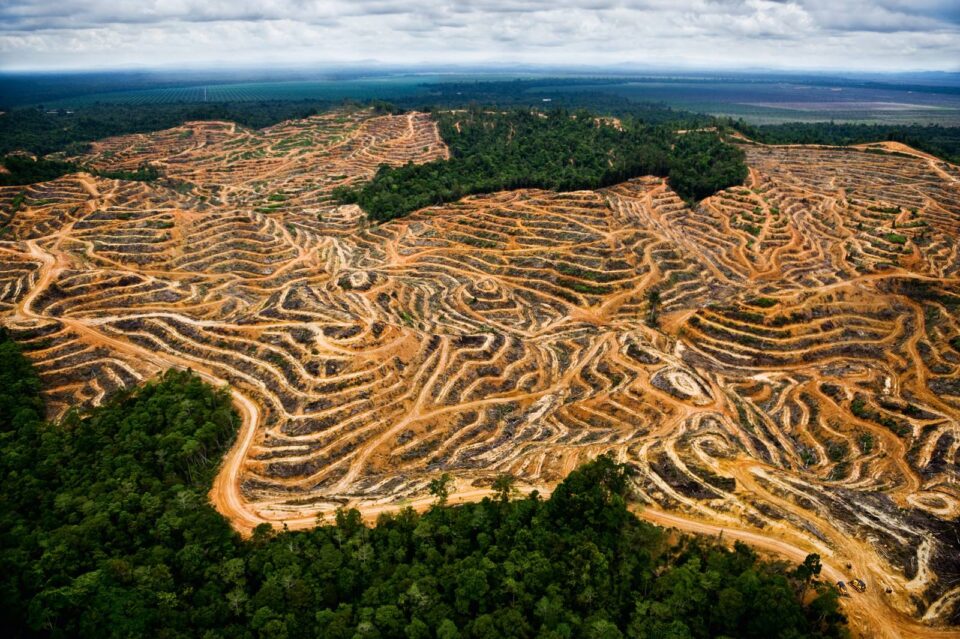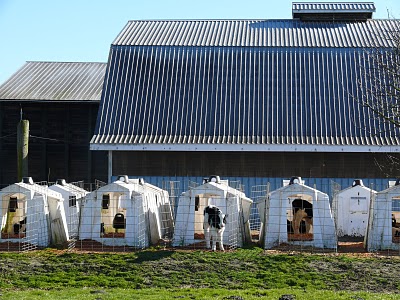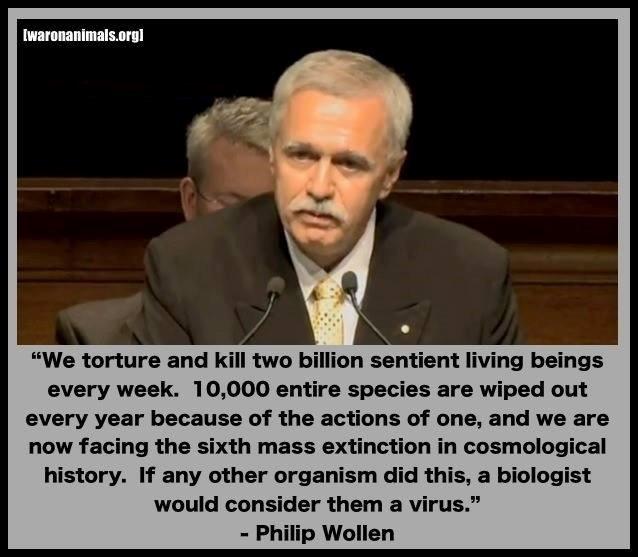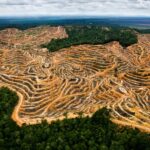The Screaming Planet
Why humans should never leave the Earth
The Screaming Planet – Planet Terror – it sounds like the title of a really bad SF novel or movie (and god knows, there are enough of those) but in truth it’s the name of the world we all live on, especially if you are a non-human animal.
By Mark Stewart
Imagine the terror of a pig or a cow on entering a slaughterhouse, knowing that it’s about to have its throat slit. The Earth is home to countless such places, to innumerable charnel houses. Our world is not the “silent planet” described by C.S. Lewis but rather a world of screaming agony as animals are dragged, hauled, pushed, stabbed and cattle-prodded towards their deaths. In the few seconds it took to read this paragraph thousands of animals have met such a death.
To my lasting shame it took me many years to hear those screams while I devoted my time to preoccupations that now seem utterly trivial. Once, in what now seems like another life, I was a passionate advocate of space exploration, both human and robotic. I cannot blame this folly entirely on influences acquired in my youth but it has to be said that the seductive glamour of science fiction played a large part. Even dystopian SF is glamorous, offering the chance to enjoy the end of the world from the comfort of a cozy armchair, the ultimate form of schadenfreude.
SF offers tech porn in abundance: genetically enhanced women, shiny gadgets and fabulous weapons, spaceships that can be flown like planes, levitating cars and alien creatures to vanquish. But apart from those exotic monsters where are all the animals? The future it seems belongs to only one species on Earth and that’s very bad news indeed. Just as the rise of human “civilization” has been disastrous for so many animals, so it would be calamitous if humanity ever encountered life on other worlds.
Before long the whole gory and ghastly process of factory farming would begin all over again, with new life-forms fed into the meat grinder, human barbarity exported on an interplanetary scale. How many new Earths’ would become global slaughterhouses? And that brings us to the name of our home world.
Planet “Earth” never felt very accurate given how much of the world’s surface is covered by water. “Oceana” might have been better, at least before the rise of humans. Since the advent of factory farming a better name for our world might be Planet Pain. Or Planet Misery. Or Planet Kill Everything That Isn’t Human. And on such a world no one has the right to claim they are exempt from the moral consequences of such slaughter.
The space dreamers allow themselves a remarkable degree of ethical freedom, the latitude to ignore what is happening to the sentient creatures they share this world with. Whether they are busy building a SF narrative or constructing a satellite, they have chosen to turn their backs on the only reality they will ever know in favor either of a fantasy world, or the beguiling depths of space.
There is something unsavory about looking up at the stars and dreaming of other worlds when the blood of slaughtered animals is washing around your ankles. The gutter of an abattoir is no place upon which to build such lofty dreams.
The ambition to reach the stars is pure SF, no matter how many seminars and workshops are held around the word on the subject. The human race will implode long before the first starship is ever built. I could understand the imperative better if it came from a desire to escape the horrors of this world. But any such flight would simply be an act of cowardice. Dreaming of reaching the stars is a schoolboy’s delusion, carried over into adult life. The Earth cannot sustain the 7 billion human beings already living on it, let alone the 11 billion predicted for the end of this century (and that’s a conservative estimate). On such a world, where do the resources come from to build, of all things, a starship?
In H.G. Wells’s The War of the Worlds, we are supposed to feel horror and revulsion at the way the Martians harvest human beings. But is this not how we treat other animals ourselves? Do we not capture and kill and consume just as H.G’s pitiless invaders did? It seems unfair when Nature comes to humanity’s aid at the end of the novel as microbes defeat the relentless despoiler. Surely karma would dictate otherwise. From an ethical point of view, humanity simply doesn’t deserve to survive.
Perhaps one film has more to say on the matter than any other. Many people choose to live their lives plugged into a very real Matrix; they’d rather not know where their plateful of meat came from. drinkers.
As Agent Smith says at one point in the film: “I’ve realized that you are not actually mammals … Every mammal on this planet instinctively develops a natural equilibrium with the surrounding environment. But you humans do not. You move to an area and you multiply and multiply until every natural resource is consumed and the only way you can survive is to spread to another area. There is another organism on this planet that follows the same pattern. Do you know what it is? A virus. Human beings are a disease, a cancer of this planet. You are a plague.”
A plague without end, a virus that will only die when the Earth itself has been completely consumed.






